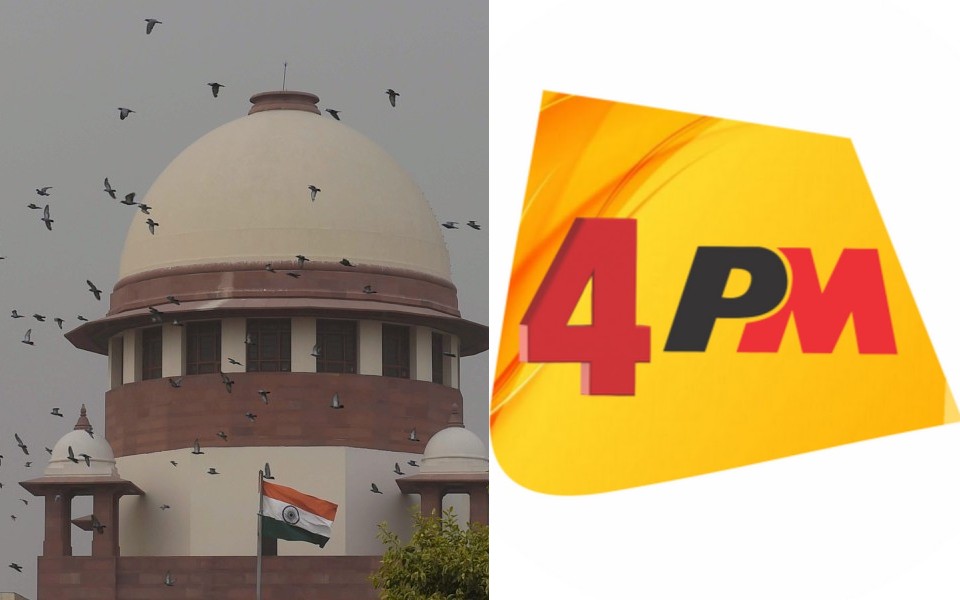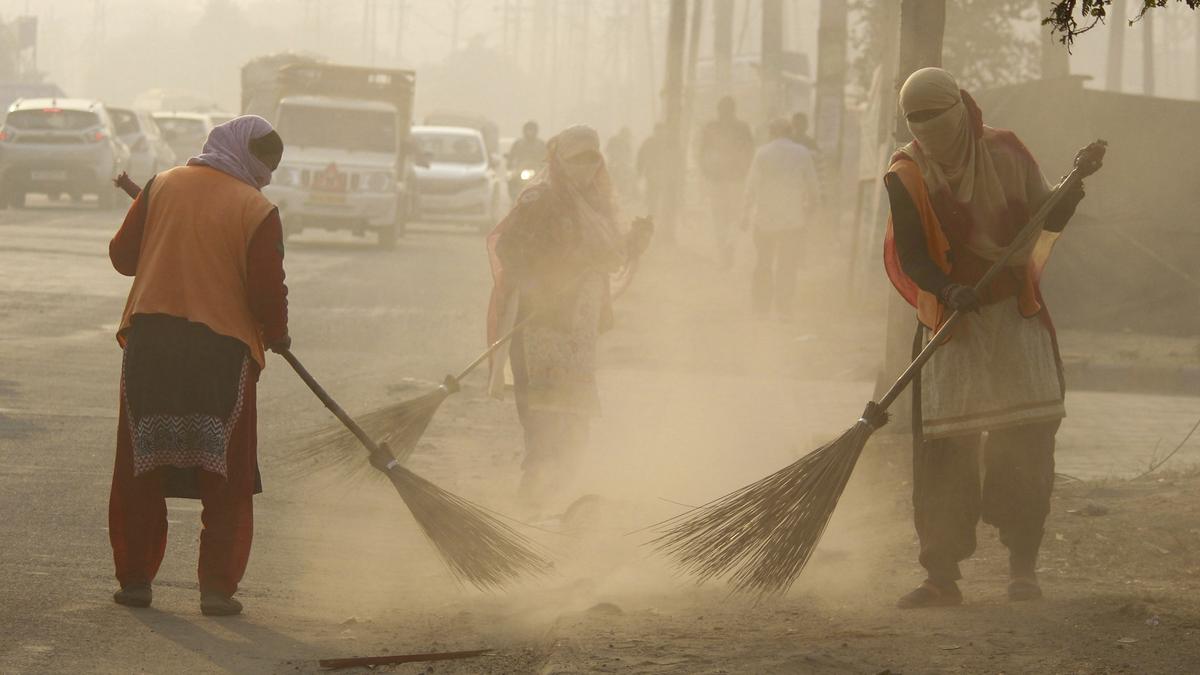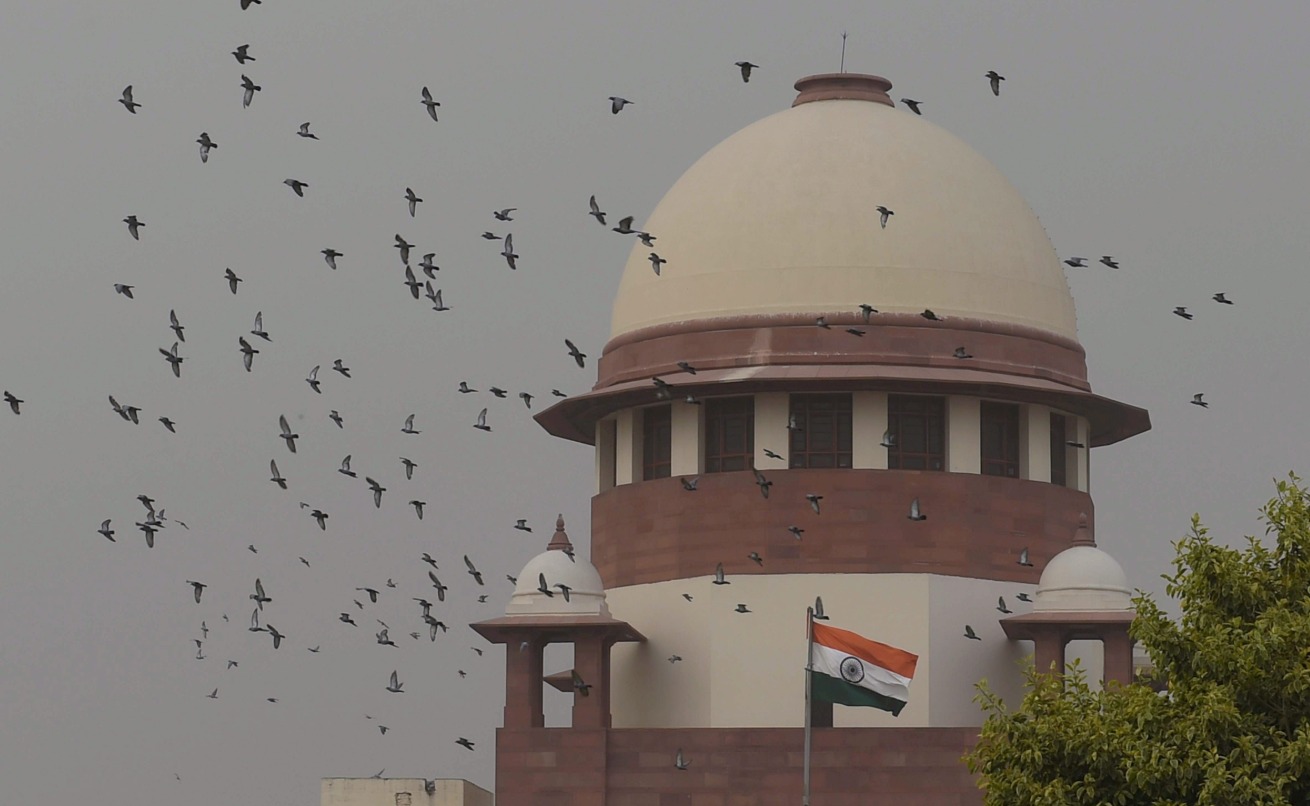New Delhi, May 10 (PTI): The Supreme Court is scheduled to hear a plea seeking quashing of an order blocking YouTube channel '4PM' on May 13.
The apex court on May 5 sought responses from the Centre and others on the plea filed by Sanjay Sharma, the editor of digital news platform '4PM', which has a subscriber base of 73 lakh.
The plea claimed that the blocking was effected by the intermediary pursuant to an undisclosed direction allegedly issued by the Centre citing "vague" grounds of "national security" and "public order".
As per the top court's cause list for May 13, the plea is slated to come up for hearing before a bench of justices B R Gavai and Augustine George Masih.
The plea claimed that the blocking was a "chilling assault on journalistic independence" and the right of public to receive information.
The petition, filed through advocate Talha Abdul Rahman, said no blocking order or underlying complaint was furnished to the petitioner, violating both statutory and constitutional safeguards.
The plea also contended that it was a settled law that the Constitution does not permit blanket removal of content without an opportunity to be heard.
"'National security' and 'public order' are not talismanic invocations to insulate executive action from scrutiny," it said.
The action was not only ultra vires the parent statute, but also strikes at the core of democratic accountability ensured by a free press, the plea said.
"The blocking is a chilling assault on journalistic independence and the right of the public to receive information," it said.
The plea sought a direction to the Centre to produce the order with "reasons" and "records", if any, issued to the intermediary for blocking the channel.
It also sought quashing of Rule 16 of the Information Technology (Procedure and Safeguards for Blocking for Access of Information by Public) Rules, 2009.
Rule 16 mandates strict confidentiality regarding all requests, complaints and actions taken under the rule.
The plea also sought striking down and/or reading down Rule 9 of the Blocking Rules, 2009, to mandate issuance of a notice, opportunity of hearing and communication of a copy of the interim order to the originator or creator of the content prior to passing a final order.
It said the petitioner's YouTube channel was blocked without giving any fair opportunity to clarify or justify his case.
Let the Truth be known. If you read VB and like VB, please be a VB Supporter and Help us deliver the Truth to one and all.
New Delhi: BJP MP Nishikant Dubey on Wednesday shared on social media an alleged income tax return (ITR) document, suggesting a sharp rise in the earnings of a journalist after leaving a salaried job. He left the identity of the journalist unnamed, asking followers to guess.
The Newslaundry citing the post reported that the purported document, which did not mention any name, showed taxable income rising from ₹18.9 lakh in 2019 to ₹1.2 crore in 2021-22, before falling to ₹62.7 lakh in 2022-23.
“Figure it out if you can: whose great journalist’s income tax return is this? Rs 18 lakh in salary, and the moment they quit the job, meaning as soon as they start roaming the streets, abusing Modi ji/BJP, it's in crores. This is the real truth,” Dubey wrote in his post.
Journalist Abhisar Sharma reacted sharply, accusing the MP of breaching confidentiality. Retweeting Dubey’s post, Sharma tagged Union Finance Minister Nirmala Sitharaman and the Income Tax Department. “Confidential documents and details of taxpayers… are being tweeted in the public forum by none other than a Member of Parliament,” he wrote, adding that he would file an FIR. “He doesn’t have the guts to name the journalist. But this is what you do. Sheer cowardice,” Sharma said.
Journalist Ravish Kumar also expressed concern, questioning the implications of the disclosure. “Is the BJP now going to extract everyone's ITR and target them? Will someone's hard-earned income be criminalized in this manner?” he asked.
Legal experts point out that disclosure of an individual’s ITR without consent is punishable under Section 72 (breach of confidentiality and privacy) and Section 138 (disclosure of information respecting assessees) of the Information Technology Act, 2000.



